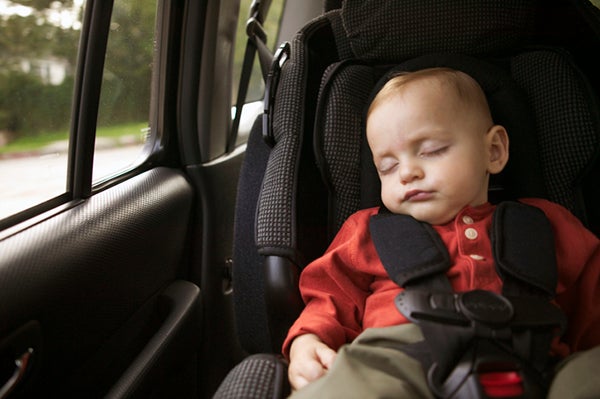Hot Cars and Kid Safety
September 4, 2024
By: WakeMed Children's Hospital
Categories: Primary Care, Children's, Emergency, Urgent Care
Tags: injury prevention, Hot Car Deaths, Heat stroke, overheating, heat exhaustion
According to the National Safety Council, in 2023 a total of 29 children died in hot cars. Sixteen hot car deaths have been reported thus far in 2024, and we still have several more weeks of summer heat ahead of us.
Most often, people heed warnings and stay inside when North Carolina’s humid, summer temperatures first hit. But, as these temperatures settle in, people may not be as cautious about avoiding extended exposure in the heat.
Kids & Hot Cars
The combination of the skyrocketing heat in a car and the speed at which a child's body temperature can rise, make for a potentially deadly combination.
- The temperatures inside a closed car can rise 20 degrees in as little as 10 minutes.
- Children's bodies heat up three to five times faster than an adult’s, making them more susceptible to heatstroke.
5 Ways to Keep Kids Safe from Heat Stroke
Remember to ACT
- A: Avoid heat stroke-related injury and death by never leaving your child alone in a car, not even for a minute. And make sure to keep your car locked when you’re not in it so kids don’t get in on their own.
- C: Create reminders by putting something in the back seat of your car next to your child such as a briefcase, a purse or a cell phone that is needed at your final destination. This is especially important if you’re not following your normal routine.
- T: Take action. If you see a child alone in a car, call 911. Emergency personnel want you to call. They are trained to respond to these situations. One call could save a life.
Get a Routine
- Make it a routine to look in the back of your car each time you exit. That way, you will notice if a sleeping child is sitting in the back.
- Schedule home care for grocery runs and other errands in which you would rather not tote your children along. It is never okay to leave a child in a vehicle while you go shopping or run inside a facility for a quick errand.
- When pumping gas, crack windows or keep your driver's side door open, so children can get air while they are sitting in the car.
Set-Up Extra Reminders
- Create a calendar reminder for your electronic devices to make sure you dropped your child off at daycare.
- Develop a plan with your daycare, so if your child is late, you’ll be called within a few minutes. Be especially careful if you change your routine for dropping off children at daycare.
Teach Kids Not to Play in Cars
- Make sure to lock your vehicle, including doors and the trunk, when you’re not using them, so children cannot enter and lock themselves inside.
- Keep keys and remote entry fobs out of your children’s sight and reach.
Pet Reminder
- Never leave pets unattended in the car or other enclosed outdoor spaces. They can quickly overheat and die.
When to Seek Care
If your child was left in a hot car, consider it a medical emergency. Children may display the following signs and symptoms:
- Headache
- Nausea
- Heavy sweating
- Dizziness
- Red skin
- Muscle cramps
- Weakness
- Fainting
- Confusion
- Increased thirst
- Irritability
- Rapid breathing
- Rapid pulse
- Cool, clammy skin
- Hyperthermia
- Rapid heartrate
Take your child to the nearest medical facility. WakeMed Urgent Care and MyCare 365 are equipped to support children with these symptoms.
If your child is unconsciousness or is having seizures after being left in a hot car, call 911 and seek care from your closest Emergency Department.
Source:
https://www.safekids.org/take-action-prevent-heatstroke